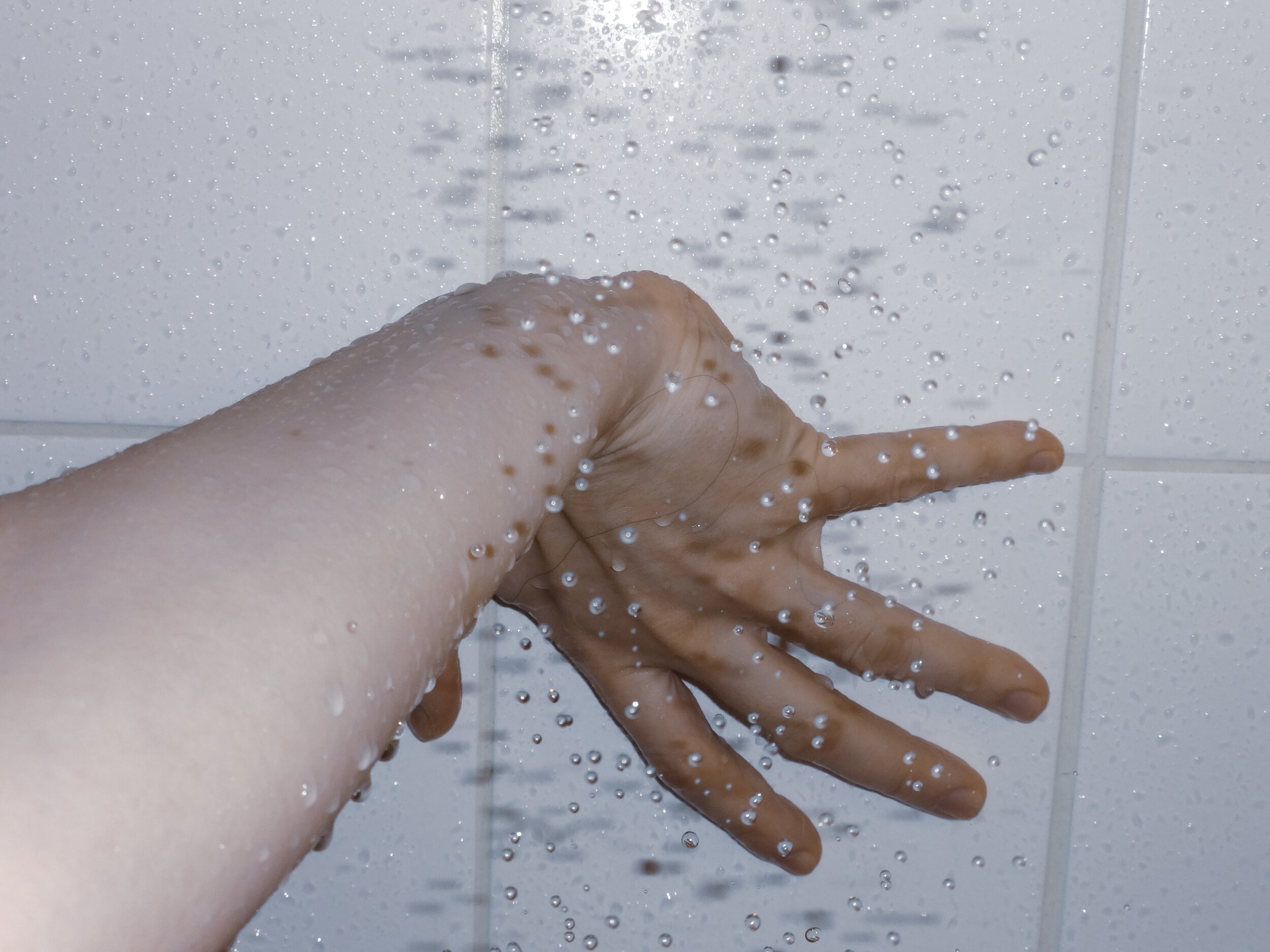Where Does It Hurt?
Sex can feel good in so many ways--the harsh high of fucking, the warm glow of making love, the syrupy slide of morning sex. Yes, sex is a reproductive act, but we have it, obsess over it, crave it, blush over it, even argue about it because it feels good. So what do we do when sex feels bad? And not just once, not for a moment, not an accidental push too deep or a squeeze too hard, not an awkwardly placed elbow or catch of fingernails. What do we do when sex hurts us over and over?
Last August just after meeting my partner, my sex life started to be haunted by chronic UTIs. The first time, I didn’t know what was happening, as I’d never experienced one before. A carefree day of lakeside swimming and sunning ended with me in tears from burning pain on the train home and barely able to stay off the toilet for more than 15 minutes due to the painful tugging of my bladder even though I had nothing more in me to piss out. For the next several months, at least once a month, a weekend of transcendent debauchery with my partner, who I cared for deeply, would be followed later in the week by a few days of torture that made me want to crawl out of my skin while I waited for herbal supplements to kick in or for the results of the urine tests that my doctor asked me to take to get back.
Even though it didn’t happen every time I had sex, I couldn’t fully enjoy the otherwise wonderful and fulfilling sex I was having because the risk of getting another UTI hovered at the periphery of my mind, choking me off from basking in the intimacy and afterglow. Whenever I wanted to melt into the liquid, boneless state of post-orgasm in the warm arms of my cuddle-prone partner, I had a pit of anxiety in my stomach whispering get up get up get up to wash up and pee in any attempt to fend off the threat of the coming pain.
Living in France where a trip to the doctor & prescription medication are extremely inexpensive even as a foreign national, it was only a mild inconvenience to have to see my doctor to get a new prescription for fosfomycin every time a UTI came on. Far more frustrating was that she didn’t have any other solution for me. We both knew what they were triggered by: they started right after I began having sex with a new partner and always came on a couple days after sex. But she didn’t have any advice for me other than taking antibiotics once a month.
I was angry and frustrated. I could have the anxiety and the pain, keep taking antibiotics every time I felt the burn, or I could give up at least some aspects of the sex I loved and shared with my partner. I started to ask myself: what is wrong with me that I can’t do the most natural thing that humans do without suffering?
Shortly after this question started echoing around in my head, I started hearing it echoed aloud as well. It started to seem like almost everyone I talked to had a story of chronic pain and illness related to sex. Many friends shared stories, either directly with me or on social media, of PMDD and endometriosis that went mis- or undiagnosed for long stretches. A follower on TikTok and a close friend told me about their experiences with vaginismus. Another friend disclosed that her IUD had been causing both her and her partner pain during sex. Still another deals with flare ups of Crohn’s disease that kill her sex drive completely. And my partner began suffering from flare ups of skin irritation that sometimes made sex unbearable for which he visited multiple doctors, none of whom could diagnose or treat it.
And I’m beginning to think now that it’s not that there is something wrong with my body and the way it reacts to sex, but that I forgot how raw and risky sex is. How delicate my body is in the soft places that sex opens up for others to see and touch and lick and enter. How much energy we expend during sex and how much we ask of those soft, slick, fragile parts of our bodies. Of course we all expose ourselves to some pain, some discomfort, some ailment when we indulge in it.
I don’t mean to say that sex will or should hurt or make us sick all the time, but that when it does, it is not our fault nor is it abnormal, a realization which has relieved so much of my own anxiety around my UTIs and any other future conditions I may encounter in my sex life. It’s freed me to talk about my pain and frustration more openly with my doctor, with my partner, and with friends, using all the resources available to me to find the best management and healing process, only one part of which is medical treatment.
It would be nice and simple if I could tell you that the solution to all of our sexual suffering was to see a medical professional, but I have yet to encounter a situation where seeing a doctor or taking medication was the only (or even best) treatment for chronic pain and illness related to sex. Even when your doctor has answers for your particular ailment (which isn’t often the case, especially for conditions which affect the female reproductive system), western medicine is rarely oriented toward sexual pleasure as one of the goals of treatment. Both my partner and I received the suggested treatment of avoiding the activities (read: sex) that triggered our symptoms, which just created more frustration as it was unrealistic and cruel to expect us to cut sex out of our lives and relationship.
Sex is natural and it does feel good, but it’s also vulnerable, personal, joyful, and serious. It feels weird to admit, but I’m kind of grateful for my UTIs. Of course, I want to find long-term treatments so I don’t have to tolerate them forever, but the moments of pain and frustration have made me appreciate the pleasure and give more weight to the intimacy of sex when I had started to take it for granted.



